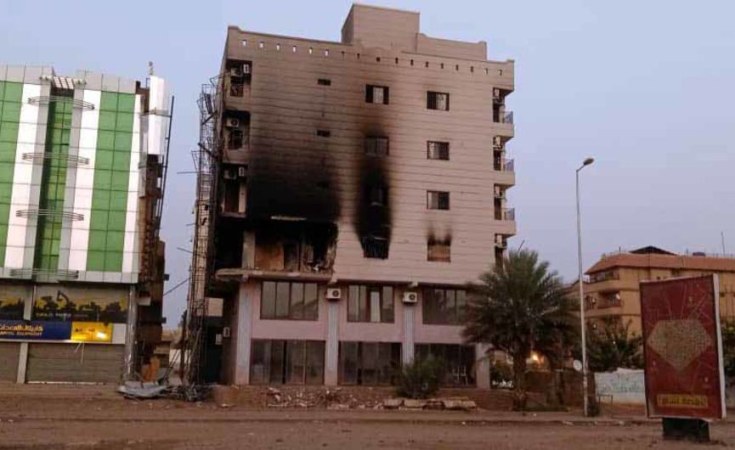The region's weak border administration limits the ability of aid organisations to provide humanitarian assistance.
Porous borders are exacerbating the humanitarian crisis in Sudan, where fighting continues to rage between the Sudanese Armed Forces and the Rapid Support Forces.
The United Nations High Commissioner for Refugees (UNHCR) reports that since the conflict began on 15 April, approximately 300 000 Sudanese have become internally displaced, and more than 100 000 have fled to neighbouring countries. These include Egypt, Chad, South Sudan, Ethiopia, and the Central African Republic (CAR). The UN recently reported that the fighting had 'choked off deliveries of essential goods and food.'
Although numerous factors contribute to the humanitarian crisis, ineffective border control facilitates the movement of people, goods and weapons across Sudan's borders. This impedes aid organisations' ability to provide life-saving assistance to affected populations.
A major problem is identifying and tracking displaced people who have crossed the border and need help. In Chad, some newly arrived refugees are living in the open or under trees, while others have set up makeshift shelters close to the border. In South Sudan, vulnerable groups such as the elderly, people with disabilities, pregnant women, female-headed households with young children, and large families are arriving at the border. Weak border registration systems have also delayed aid delivery.
According to the United Nations Office for the Coordination of Humanitarian Affairs (OCHA), approximately 9 700 displaced people have crossed into CAR and settled near the border town of Am-Dafock. This is destabilising the country's already fragile economy, where 56% of the population needs humanitarian assistance. Rising numbers of refugees will overwhelm the international aid apparatus in CAR.
A major problem is identifying and tracking displaced people who have crossed the border and need help
People displaced by Sudan's war are forced to live in unsafe and unsanitary conditions, with limited access to food, water and shelter. Registering and relocating them to more secure locations away from the border is a priority, and the UNHCR has recognised the need to take action. This involves identifying those who need help and transporting them to places where they are protected from cross-border attacks and criminal activities.
Creating such safe pathways is a complex undertaking requiring collaboration between governments, humanitarian organisations and other actors. Functional border control and registration systems help to identify and quickly assist displaced individuals without exacerbating existing conflicts.
Porous boundaries have perpetuated the proliferation of armed groups and militias in the region. Fighters move freely between countries and evade authorities, carrying out cross-border attacks and other crimes. The Janjaweed in Sudan has used their proximity to Chad and South Sudan borders to launch raids and loot livestock in those countries. In CAR, militias are accused of recruiting child soldiers and smuggling diamonds across the borders with Sudan and Chad.
Functional registration systems help to identify and quickly assist displaced individuals
In South Sudan, the government has allegedly used militias to target civilians in areas believed to support the opposition groups, leading to massive displacement and exacerbating the humanitarian crisis. These groups exploit the lack of sound border control and security measures to smuggle arms, recruit new members and launch surprise attacks on communities and military bases.
The conflict in Sudan could spill over into neighbouring countries, with grave implications for their stability. Chad, South Sudan and CAR are already dealing with internal conflicts and displacement. Chad has received 30 000 Sudanese refugees despite closing its border when clashes started in April. That is in addition to the 600 000 refugees and 400 000 internally displaced people due to Chad's own instability.
Dealing with porous borders requires short- and long-term measures. As a matter of urgency, the Sudanese government should increase border patrols and implement stricter immigration and customs controls. International organisations such as the UN and the African Union can facilitate dialogue and cooperation between neighbouring countries to address shared border security challenges. In the long term, border regions need better governance and socio-economic development.
Margaret Monyani, Senior Researcher, Migration, ISS Pretoria


